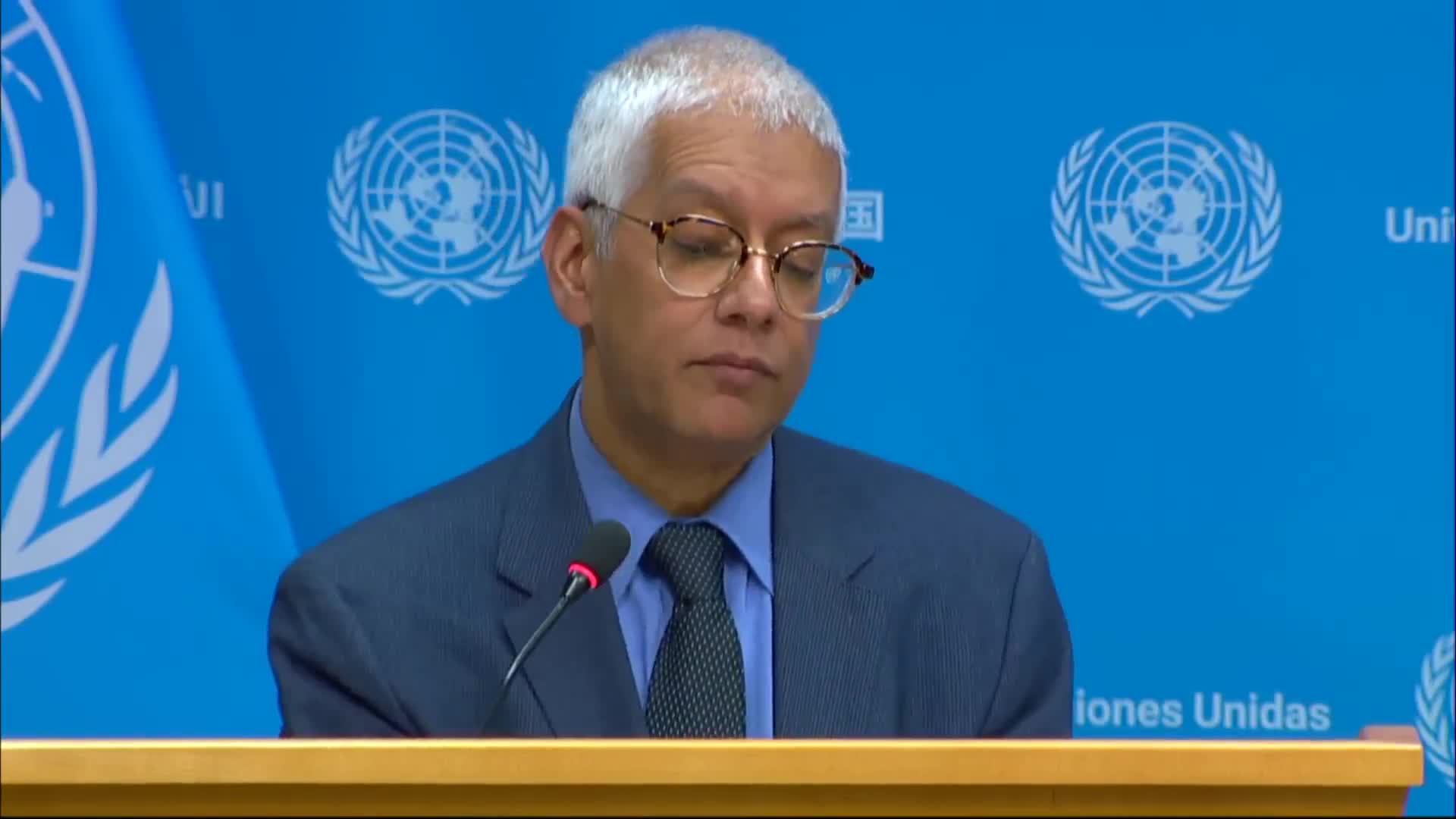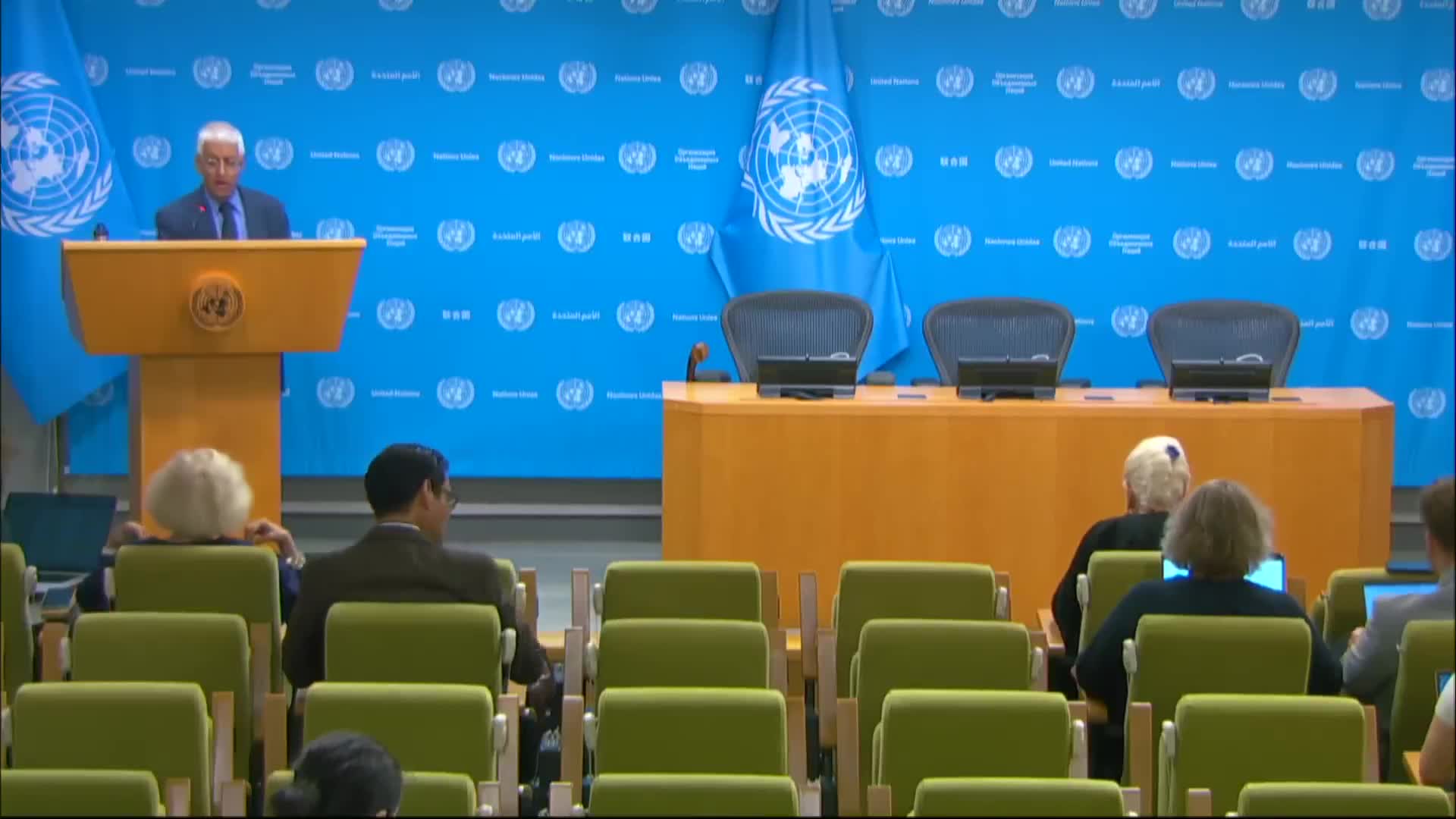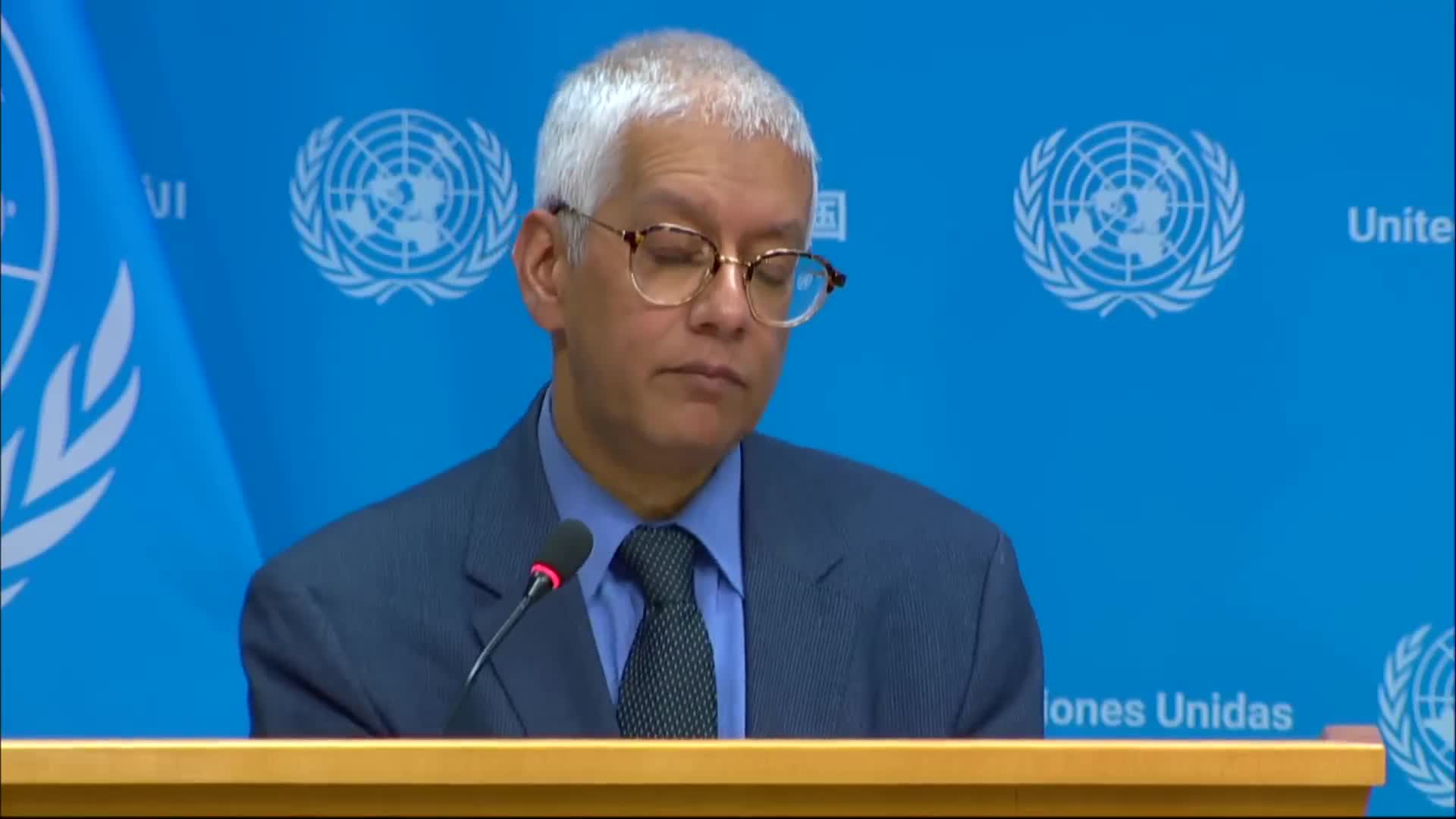Article not found
This article is no longer available. But don't worry—we've gathered other articles that discuss the same topic.

U.N. says Gaza humanitarian operation at risk as fuel stocks are looted and crossings remain closed; flotilla detainees under review

U.N. secretary-general urges countries to ratify high-seas biodiversity pact, calls for legally binding plastics treaty

